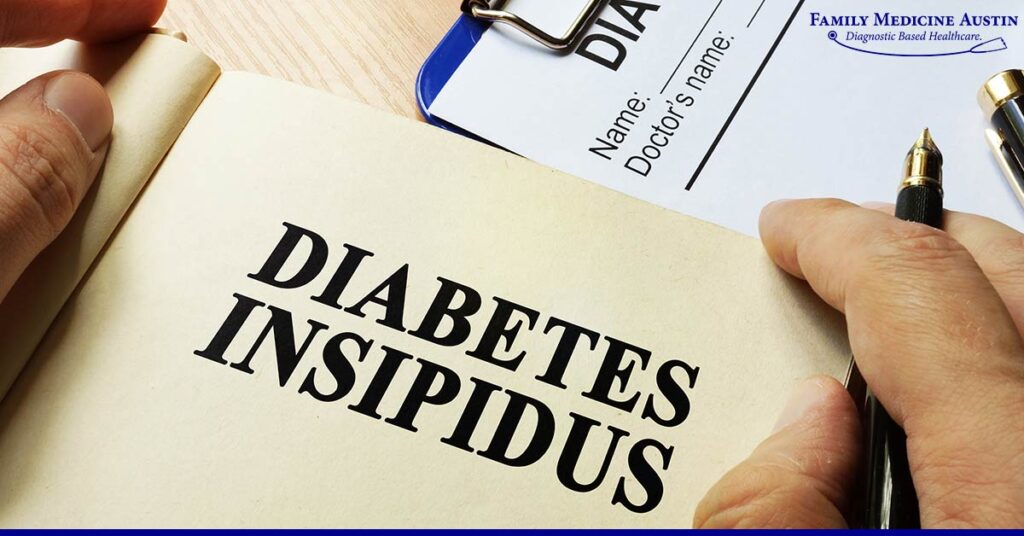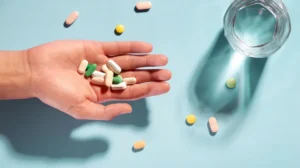Nephrogenic diabetes insipidus (NDI) is a rare disorder characterized by the inability of the kidneys to concentrate urine, leading to excessive urination and extreme thirst. Unlike diabetes mellitus, which involves blood sugar regulation, diabetes insipidus is related to the regulation of water within the body. While NDI cannot be cured, various treatment approaches can effectively manage its symptoms and improve the quality of life for those affected. Keep reading this blog to know all about the Nephrogenic diabetes insipidus treatment options and how to get help.
Contents
What is Nephrogenic Diabetes Insipidus?

Nephrogenic diabetes insipidus (NDI) is a rare kidney disorder characterized by the kidney’s inability to respond properly to the hormone vasopressin, also known as antidiuretic hormone (ADH). Vasopressin plays a crucial role in regulating the body’s water balance by controlling the amount of water reabsorbed by the kidneys and the concentration of urine produced. In individuals with NDI, the kidneys fail to concentrate urine adequately, resulting in the excretion of large volumes of dilute urine.
There are two main types of diabetes insipidus: central diabetes insipidus (CDI) and nephrogenic diabetes insipidus (NDI). CDI occurs when the body fails to produce or release sufficient vasopressin, whereas NDI occurs when the kidneys do not respond properly to vasopressin despite normal secretion of the hormone by the pituitary gland.
The primary symptoms of NDI include:
- Polyuria: Excessive urination, leading to the production of large volumes of dilute urine.
- Polydipsia: Excessive thirst, resulting from the loss of water through frequent urination.
- Nocturia: Frequent urination during the night, disrupting sleep patterns.
- Dehydration: Despite drinking large amounts of fluids, individuals with NDI may become dehydrated due to the excessive loss of water through urine.
- Electrolyte Imbalances: Prolonged polyuria can lead to imbalances in electrolytes such as sodium and potassium, potentially causing weakness, fatigue, and other symptoms.
Treatment Approaches for Nephrogenic Diabetes Insipidus
While NDI cannot be cured, various treatment strategies aim to manage its symptoms and prevent complications associated with excessive urination and dehydration. The choice of treatment depends on the underlying cause of NDI and the individual’s specific needs. Here are some common treatment approaches:
How To Get Nephrogenic Diabetes Insipidus?

If you’re looking for online resources that provide information and support for individuals with nephrogenic diabetes insipidus (NDI), here are a few websites that may be helpful:
- National Organization for Rare Disorders (NORD) – The NORD website offers comprehensive information on rare diseases, including NDI. They provide resources such as patient support programs, educational materials, and links to advocacy groups.
- Diabetes Mantra – Diabetes Mantra provides information about genetic and rare diseases for patients, families, and healthcare providers. Their website includes a database of rare diseases, including NDI, along with information on research, clinical trials, and support organizations.
- American Association of Kidney Patients (AAKP) – AAKP is a nonprofit organization dedicated to improving the lives of kidney patients through education, advocacy, and support. Their website offers resources for individuals with kidney disorders, including NDI, as well as information on treatment options and lifestyle management.
- The Kidney Foundation of Canada – This organization provides support and information for Canadians affected by kidney disease, including NDI. Their website offers educational resources, patient support programs, and links to local chapters and support groups.
- Rare Kidney Stone Consortium (RKSC) – RKSC is a research consortium focused on rare kidney stone disorders, including NDI. Their website provides information on ongoing research, patient registries, and resources for individuals with rare kidney disorders.
Conclusion
Nephrogenic diabetes insipidus is a challenging condition to manage, but with appropriate treatment and lifestyle modifications, individuals with NDI can lead fulfilling lives. Treatment approaches focus on maintaining hydration, reducing urine output, and preventing complications associated with excessive urination and dehydration. Collaboration between healthcare providers and patients is essential to tailor treatment plans to individual needs and optimize outcomes for those affected by NDI.
Do you want to get rid of diabetes? Join our online diabetes treatment program and reverse Diabetes naturally through lifestyle changes such as a Personalized Diet plan, Exercise, Yoga, dieticians, and health coaches.



